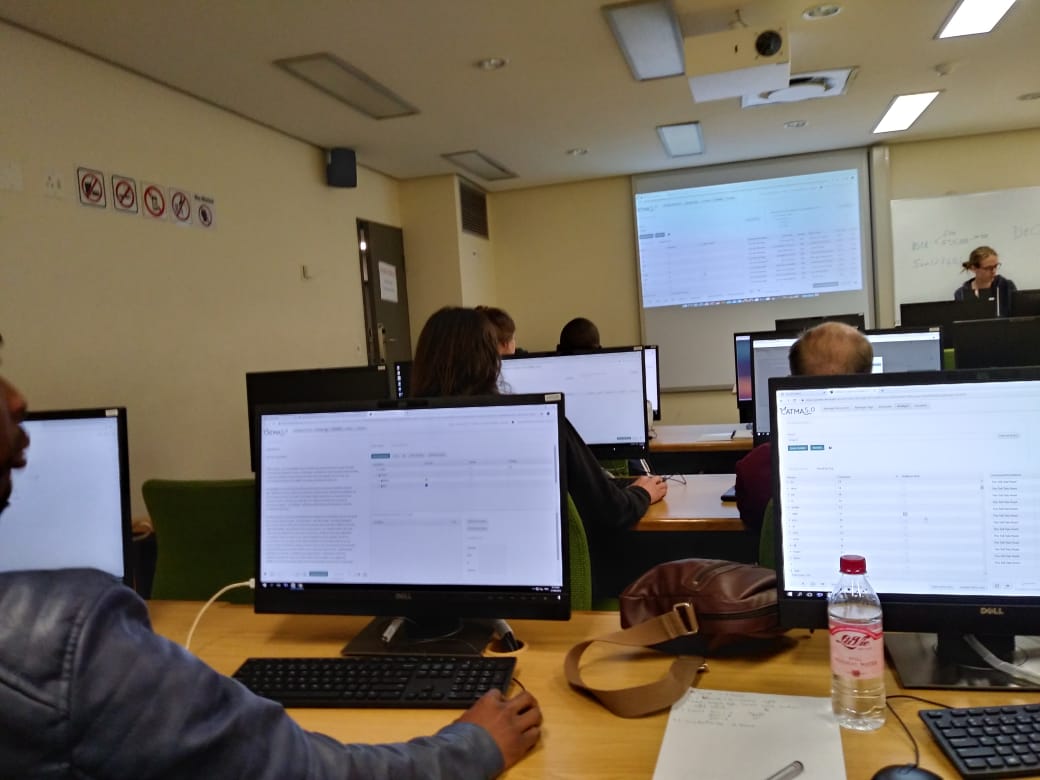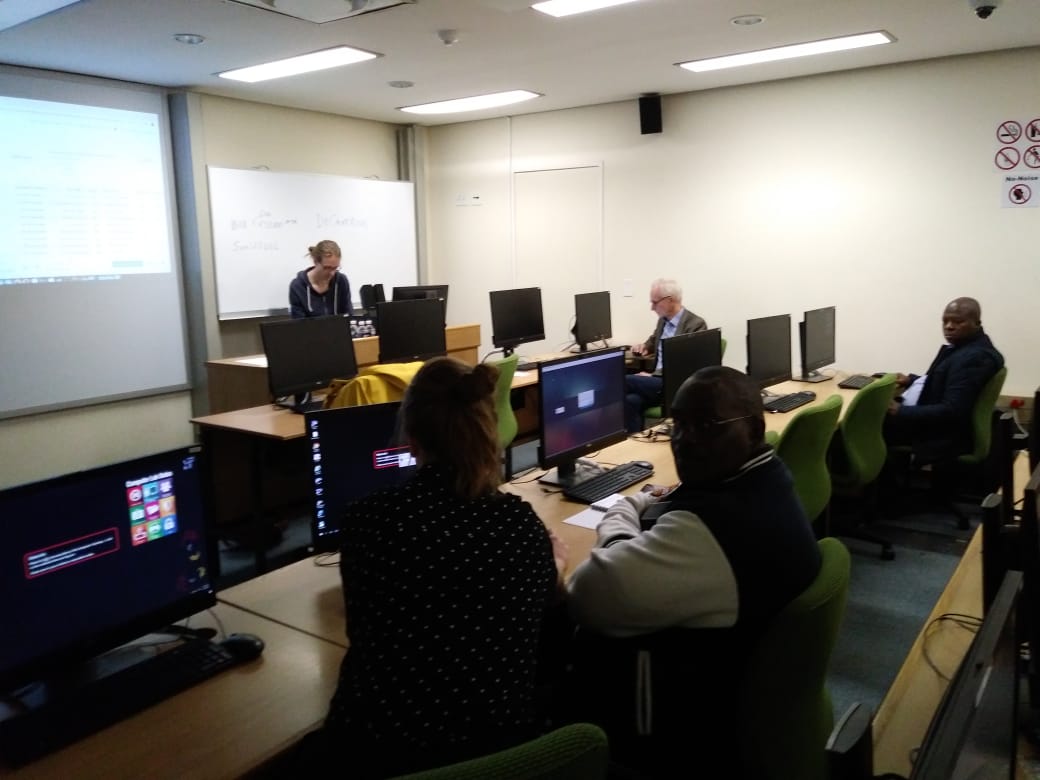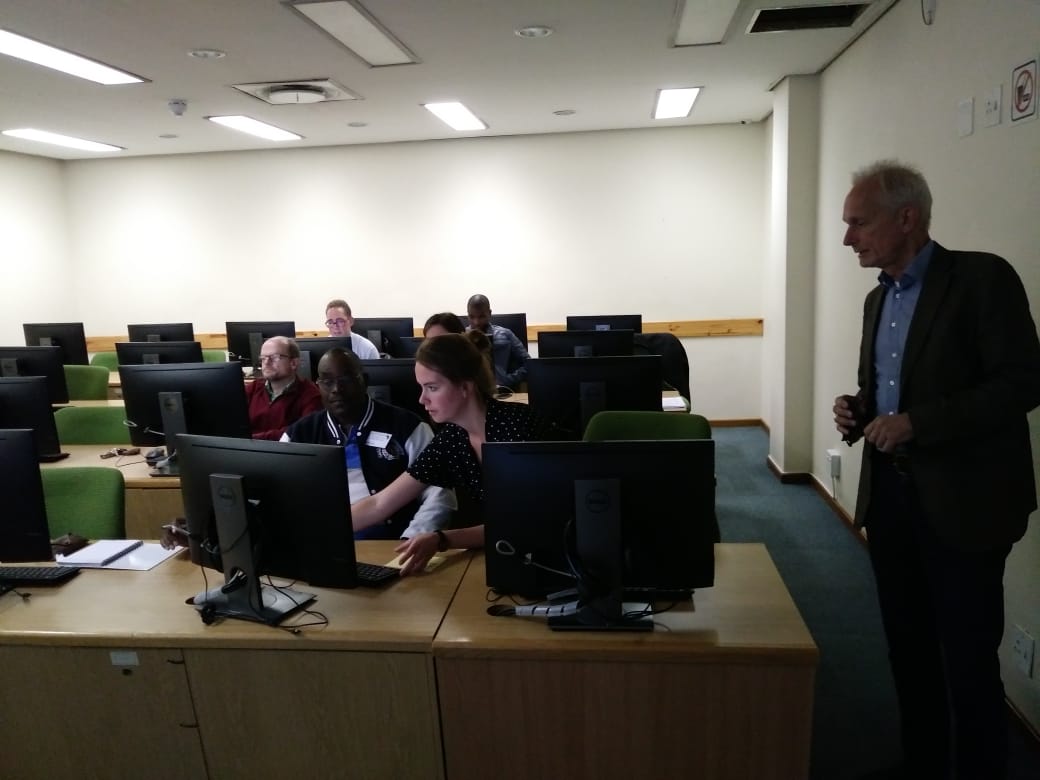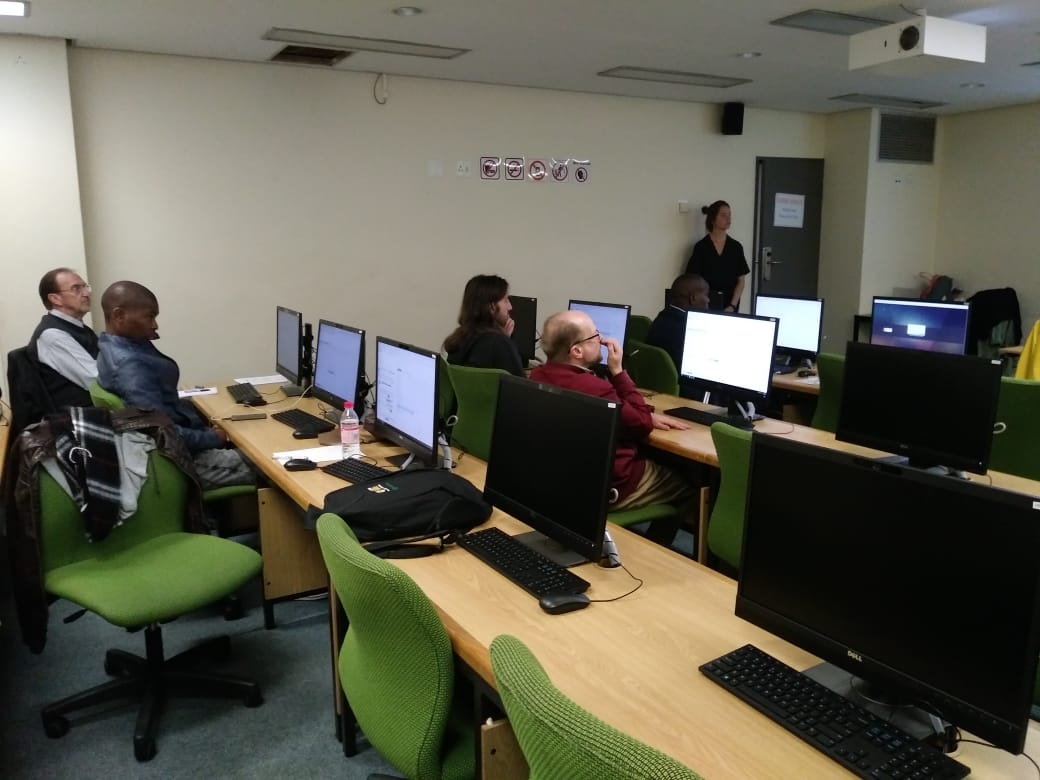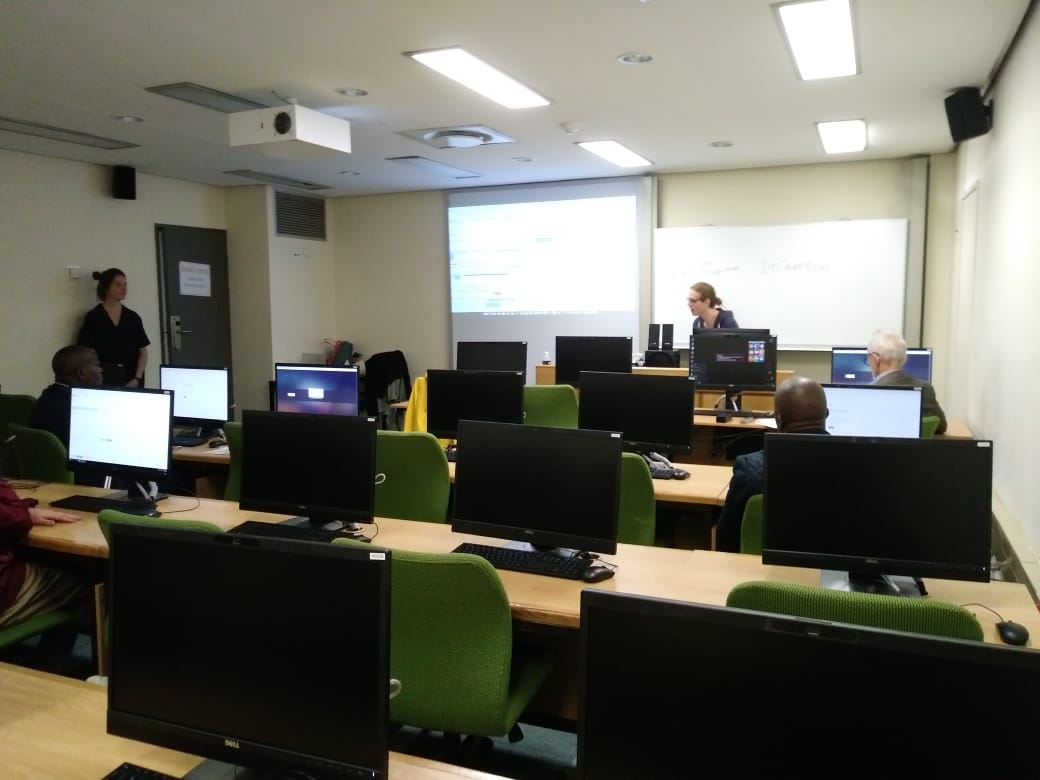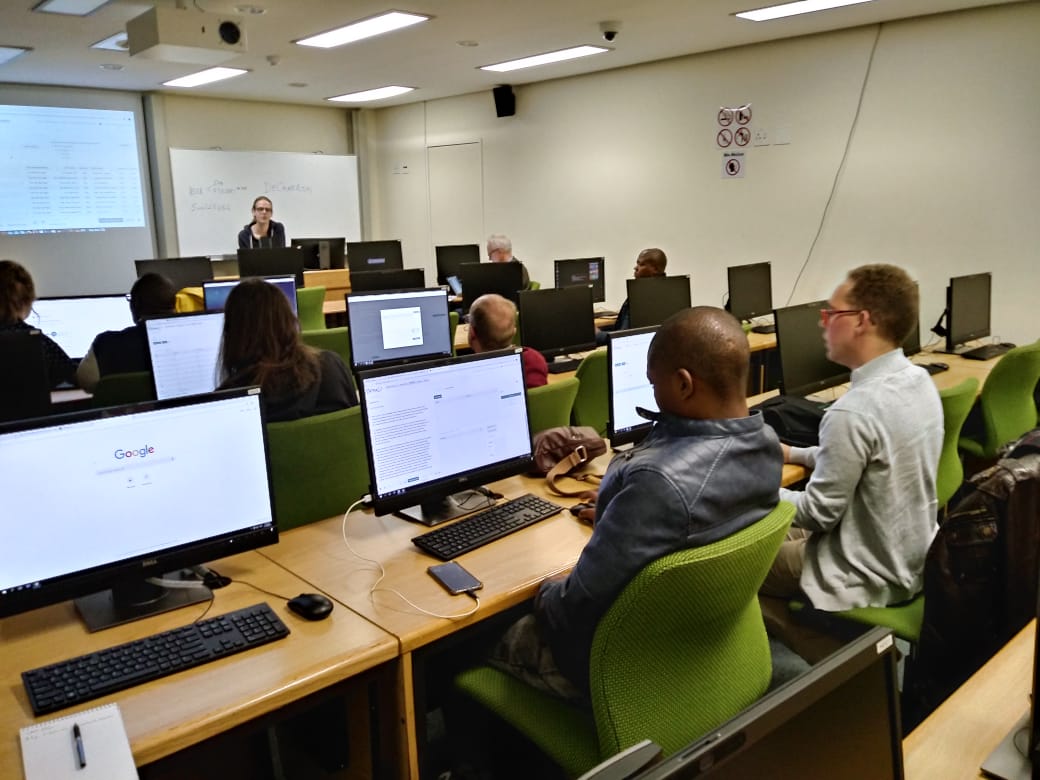Benito Trollip
The Stellenbosch University Department of Afrikaans and Dutch, in collaboration with Hamburg University and the South African Centre for Digital Language Resources hosted a workshop on CATMA (Computer Assisted Text Markup and Analysis) from 20 – 21 June 2019. The presenters of the workshop were Professor Jan Christoph Meister (Chris), Dr. Jan Horstmann, and Marie Flüh (M.Ed.) from the University of Hamburg. The workshop started with a brief introduction by Prof Meister, followed by the workshop participants introducing their current or future projects/research. The research introduced ranged from translation studies and lexicography to the detection of animals in Afrikaans literature.
Dr Horstman took the participants through the basics of CATMA that involved the uploading, annotating, and analysing of corpora. A key feature of CATMA is that it runs from your browser (requiring internet access) and it is a methodology that promotes and enables effortless collaboration. You can choose to share your data and tagsets in view or edit mode, making it possible for colleagues and students to work together without being in the same room/country. Prof Meister even discussed the possibility of using CATMA to inspect your own writing before submitting it for publication! This is just one interesting possible use of CATMA.
The workshop had a strong usage approach that gave participants the opportunity to work with CATMA while hands-on assistance was available throughout. The presenters were eager to help anyone who got stuck. I can definitely see how this tool, and the approach the team at forTEXT (the overarching project that CATMA is part of) takes in general, can be beneficial to all humanities researchers. I implore all researchers to make use of the undogmatic possibilities that CATMA offers.
Everyone can look forward to CATMA 6.0 that will be implemented in September 2019.
For more information, see CATMA’s website (catma.de) and also forTEXT’s website (fortext.net).
